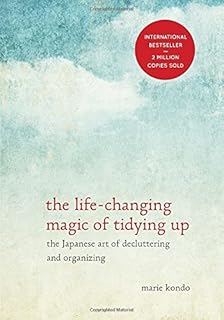mutagenesis : Related Words Words similar in meaning to mutagenesis
- mutagenesis«
- insertional mutagenesis«
- premutagenic«
- mutation«
- replication«
- genetic science«
- mutagenic«
- dna«
- genetics«
- mutagenetic«
- adduct«
- cytogenetics«
- megaprimer«
- dna damage«
- proteomics«
- antimutagenesis«
- error«
- geneticist«
- genomics«
- mutagen«
- molecular genetics«
- guanine«
- pharmacogenetics«
- reactive oxygen specie«
- cause«
- lesion synthesis«
- mutagenic metabolite«
- depurination«
- lesion«
- gene«
- spontaneous mutation«
- dna.«
- biological activation«
- cytochrome p450«
- organism«
- pahs«
- mustard gas«
- incorrect insertion«
- j. m. robson«
- hermann muller«
- radiation«
- apurinic site«
- charlotte auerbach«
- dna lesion«
- dna adduct«
- o6«
- bases«
- mutant strain«
- template strand«
- reactive specie«
- specific mutation«
- chromosome«
- random mutation«
- intercalation«
- cancer«
- base«
- thymine«
- dna polymerase«
- adenine«
- alkylation«
- gene product«
- uv radiation«
- cellular process«
- mammalian cell«
- dna replication«
- breakage«
- chemical«
- dna sequence«
- eukaryote«
- metabolite«
- fruit fly«
- ray«
- protein«
- mechanism«
- repair«
- stable intercalation«
- reactive alkyl cation«
- purine site«
- prone trans«
- pah adduct«
- o6-adduct«
- o6 methylation«
- normal cellular molecule«
- nature mutagenesis«
- natural occurring chemical«
- n7-guanine adduct«
- mutagen result«
- mitotic homologous recombination«
- misreplication«
- many chemical mutagen«
- mammalian nuclear dna«
- lethal blockage«
- inaccurate repair process«
- his contemporary lewis stadler«
- forward slippage«
- fidelity replicative dna polymerase«
- emergency repair process«
- dna. incorrect repair«
- dna. double«
- dna repair#translesion synthesis«
- dna lesion bypass«
- dna damage episode«
- defective dna repair function«
- daughter dna.«
- damage episode«
- cyclobutyl ring«
- crosslinking«
- chromosomal partition mechanism«
- changed base pair«
- bypass polymerase«
- bulky aromatic adduct«
- anticancer chemotherapeutic«
- additional significant source«
- accurate dna repair system«
- abnormal nucleotide«
- cell«
- deletion«
- process«
- functioning«
- agent«
- various constituent«
- structural disruption«
- reverse slippage«
- promutagens«
- numerous dna repair pathway«
- most mutagen«
- laboratory technique«
- influence dna repair process«
- inaccurate dna repair process«
- dna polymerase η«
- dna damage site«
- carcinogenic form«
- adjacent thymine«
- abnormal alteration«
- y family«
- nucleotide fragment«
- dimerization«
- backbone«
- interstrand cross«
- enzyme topoisomerase ii«
- dna gap«
- base substitution mutation«
- damage«
- technique«
- rescue mechanism«
- base pair substitution«
- article dna repair«
- normal replication«
- chromosomal breakage«
- environmental mutagen«
- crosslinkers«
- sunlight«
- spontaneous hydrolysis«
- proflavine«
- incorrect base«
- base analog«
- strand«
- misincorporation«
- insertion mutation«
- dna repair«
- dna due«
- mutational effect«
- function«
- site«
- formation«
- chemical addition«
- reactive free radical«
- microsomal epoxide hydrolase«
- repair pathway«
- normal exposure«
- excision repair«
- many mutation«
- psoralens«
- normal cellular process«
- dna-«
- arylation«
- chemical mutagen«
- heritable disease«
- early method«
- pyrimidine dimer«
- dna repair process«
- human skin cell«
- translesion synthesis«
- impaired function«
- other enzyme«
- deletion mutation«
- so response«
- stable manner«
- many compound«
- planar structure«
- enzyme«
- daunorubicin«
- mitomycin c«
- free manner«
- anthracyclines«
- double strand break«
- laboratory procedure«
- day«
- replication process«
- mutant protein«
- ethidium bromide«
- dna mutation«
- cytidine«
- nitrosamines«
- adenosylmethionine«
- dna backbone«
- xeroderma pigmentosum«
- glutathione s«
- laboratory«
- pyrrolizidine alkaloid«
- aromatic amine«
- nucleic acid sequence«
- e. coli bacteria«
- complementary strand«
- error prone«
- functional element«
- catalytic reaction«
- nitrous acid«
- mutant gene«
- interferes«
- aflatoxin«
- control element«
- transposon«
- cell function«
- transition«
- type«
- strand break«
- evolution«
- mechanisms«
- cisplatin«
- physiological condition«
- coding region«
- glycosidic bond«
- cyclophosphamide«
- gene transcription«
- coal tar«
- metabolic process«
- molecular basis«
- dna strand«
- biological agent«
- stretching«
- pah«
- slippage«
- frequent occurrence«
- polycyclic aromatic hydrocarbon«
- causal relationship«
- stalling«
- deleterious effect«
- genetic information«
- causative agent«
- oxidative stress«
- cytochrome«
- translocation«
- genetic mutation«
- skin cancer«
- rise«
- dimer«
- eukaryotic cell«
- catalysis«
- generation«
- cadmium«
- soot«
- transferase«
- detail«
- result«
- hundredth«
- ultraviolet«
- aqueous solution«
- rearrangement«
- varies«
- chromium«
- nature«
- nucleotide«
- sufferer«
- uv«
- bonding«
- inaccuracy«
- ability«
- insert«
- inactivation«
- force«
- practical application«
- oxide«
- extensive damage«
- property«
- yeast«
- round«
- effect«
- fidelity«
- toxicity«
- types«
- nickel«
- barley«
- maize«
- transcription«
- activation«
- transit«
- trait«
- virus«
- bacteria«
- tissue«
- strain«
- genetical«
- genetic«
- etiology«
- aetiology«
- structural genomics«
- functional genomics«
- producer«
- cytogeneticist«
- cistron«
- antecedent«
- make«
- do«
- factor«
- get«
- have«
- transgene«
- suppressor gene«
- suppressor«
- homeotic gene«
- genetic marker«
- breed«
- produce«
- persuader«
- incentive«
- inducer«
- spawn«
- stimulation«
- input«
- transforming gene«
- suppresser gene«
- structural gene«
- repressor gene«
- regulatory gene«
- regulator gene«
- recessive gene«
- operator gene«
- modifier gene«
- lethal gene«
- holandric gene«
- dominant gene«
- linked genes«
- allele«
- wild card«
- initiation«
- stimulus«
- inducement«
- oncogene«
- initiate«
- linkage group«
- pioneer«
- motivator«
- releasing hormone«
- releasing factor«
- intrinsic factor«
- causing«
- trigger«
- induction«
- causal agent«
- inducing«
- parameter«
- unknown quantity«
- proto-oncogene«
- suppresser«
- polygene«
- nonallele«
- etiologist«
- cytogeny«
- cytogenesis«
- allelomorph«
- aetiologist«
- causality«
- causation«
- kick up«
- prompt«
- causal agency«
- mold«
- reason«
- shape«
- move«
- grounds«
- stimulant«
- modifier«
- let«
- occasion«
- influence«
- lead«
- fundamental«
- 8-oxoguanine«
- 5-bromouracil«
- 5-methylcytosine«
- Wilmut«
- Weismann«
- Watson«
- Ventner«
- Trofim Denisovich Lysenko«
- Muller«
- Martin Cline«
- Lysenko«
- John Burdon Sanderson Haldane«
- James Watson«
- James Dewey Watson«
- J. Craig Ventner«
- J. B. S. Haldane«
- Ian Wilmut«
- Hermann Joseph Muller«
- Haldane«
- Craig Ventner«
- Cline«
- August Friedrich Leopold Weismann«
- Y-linked gene«
- X-linked gene«



